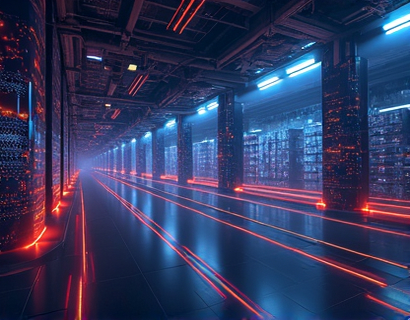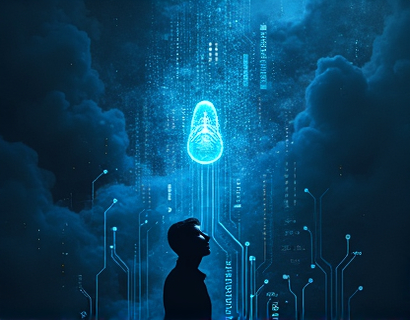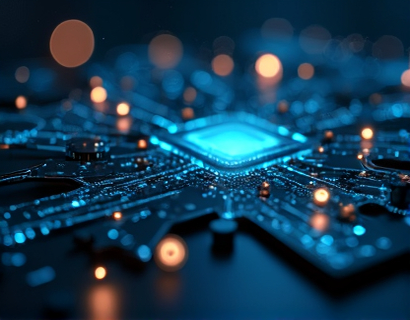AI-Driven Personalized Learning: Transforming Education Through Adaptive Technology
In the rapidly evolving landscape of education, the integration of artificial intelligence (AI) has opened new avenues for personalized learning experiences. This shift towards AI-driven personalized learning is revolutionizing the way students and lifelong learners engage with educational content, offering a tailored approach that adapts to individual needs, learning styles, and paces. The core idea is to leverage adaptive technology to create a more accessible, engaging, and effective educational environment, ultimately empowering learners to maximize their potential and achieve their goals.
The concept of personalized learning is not new, but the application of AI has significantly enhanced its capabilities. Traditional educational methods often struggle to cater to the diverse needs of students, leading to a one-size-fits-all approach that can leave many learners behind. AI-driven personalized learning addresses this gap by providing customized learning paths that consider each student's unique strengths, weaknesses, preferences, and learning pace. This approach not only enhances the learning experience but also promotes inclusivity, ensuring that education is accessible to all, regardless of their background or learning style.
One of the key advantages of AI-driven personalized learning is the ability to deliver instant feedback. In a traditional classroom setting, providing immediate and personalized feedback to each student is a challenging task for educators. AI systems, however, can analyze a student's performance in real-time, offering instant corrections, suggestions, and encouragement. This immediate feedback loop is crucial for reinforcing learning, correcting misunderstandings, and keeping students motivated. By receiving timely feedback, learners can quickly adjust their understanding and improve their performance, leading to better academic outcomes.
Moreover, AI-driven platforms create a supportive learning environment that adapts to the emotional and psychological needs of students. The adaptive nature of these systems means that the difficulty level of tasks can be dynamically adjusted based on the learner's progress. This ensures that students are neither overwhelmed nor under-challenged, maintaining an optimal level of engagement and interest. The supportive environment fostered by AI also reduces the fear of failure, encouraging students to take risks and explore new concepts with confidence.
Personalized learning through AI is particularly beneficial for students with different learning styles. Some learners are visual, preferring diagrams and videos, while others are auditory, benefiting from lectures and discussions. Then there are kinesthetic learners who learn best through hands-on activities. AI-driven platforms can identify a student's preferred learning style and tailor the content accordingly. For instance, a visual learner might receive more infographics and videos, whereas an auditory learner might get access to podcasts and audio lectures. This customization ensures that each student receives content in a format that resonates with them, enhancing comprehension and retention.
The adaptive technology behind AI-driven personalized learning is powered by advanced algorithms and machine learning models. These models analyze vast amounts of data, including student interactions, performance metrics, and feedback, to create a comprehensive profile of each learner. Based on this profile, the system continuously refines the learning experience, introducing new materials, adjusting the pace, and providing targeted resources. This data-driven approach not only personalizes the learning journey but also helps educators gain insights into student performance, allowing them to intervene when necessary and provide additional support.
For lifelong learners, the benefits of AI-driven personalized learning are equally significant. In the modern workforce, continuous learning and skill development are essential for career advancement and staying relevant in a rapidly changing job market. AI-powered platforms offer flexible and convenient learning options that fit into the busy schedules of professionals. Whether it's a short course to acquire a new skill or a comprehensive program for a career transition, these platforms provide the necessary support and resources to help individuals achieve their goals at their own pace.
One of the most compelling aspects of AI-driven personalized learning is its ability to bridge the gap between theory and practice. Traditional educational methods often focus on theoretical knowledge, sometimes at the expense of practical application. AI systems can integrate real-world scenarios and simulations, allowing learners to apply what they have learned in a practical context. This hands-on approach not only reinforces learning but also builds confidence and competence, preparing students for real-world challenges.
Furthermore, AI-driven personalized learning promotes self-directed learning, a critical skill in the 21st century. By providing learners with control over their learning journey, these platforms encourage independence and autonomy. Students are empowered to set their own goals, choose their learning paths, and monitor their progress. This sense of ownership over their education fosters a deeper engagement and a lifelong love for learning.
The implementation of AI in education also addresses the issue of resource allocation. In traditional settings, educators often have to manage large classes, making it difficult to provide individualized attention to each student. AI-driven platforms can handle a large number of learners simultaneously, ensuring that each student receives the support they need without overburdening educators. This scalability makes personalized learning accessible to a broader audience, including under-resourced schools and communities.
Another significant advantage of AI-driven personalized learning is its potential to reduce educational disparities. By providing high-quality, tailored educational experiences to students from diverse backgrounds, these platforms can help level the playing field. Access to AI-powered learning tools can bridge the gap between students from affluent and underprivileged areas, ensuring that everyone has the opportunity to succeed. This democratization of education is a crucial step towards creating a more equitable society.
Despite the numerous benefits, the integration of AI in education is not without challenges. One of the primary concerns is data privacy and security. The collection and analysis of student data raise important questions about how this information is stored, used, and protected. It is essential for developers and educators to implement robust data protection measures and transparent policies to build trust and ensure compliance with regulations.
Another challenge is the need for continuous improvement and updates to the AI algorithms. As educational standards and curricula evolve, the AI systems must adapt to remain relevant and effective. This requires ongoing investment in research and development, as well as collaboration between educators, technologists, and subject matter experts to ensure that the content is accurate, up-to-date, and aligned with learning objectives.
Additionally, there is a need to address the digital divide, ensuring that all students have access to the technology required for AI-driven personalized learning. While the potential of these platforms is immense, it is crucial to consider the socioeconomic factors that may prevent some students from benefiting from them. Initiatives to provide affordable or free access to necessary devices and internet connectivity are essential to make personalized learning truly inclusive.
In conclusion, AI-driven personalized learning represents a transformative shift in education, offering a tailored, adaptive, and supportive learning experience that caters to the unique needs of each student. By leveraging advanced technology, these platforms enhance engagement, improve outcomes, and promote inclusivity. As the educational landscape continues to evolve, the integration of AI will play a pivotal role in shaping the future of learning, empowering students and lifelong learners to reach their full potential.










































